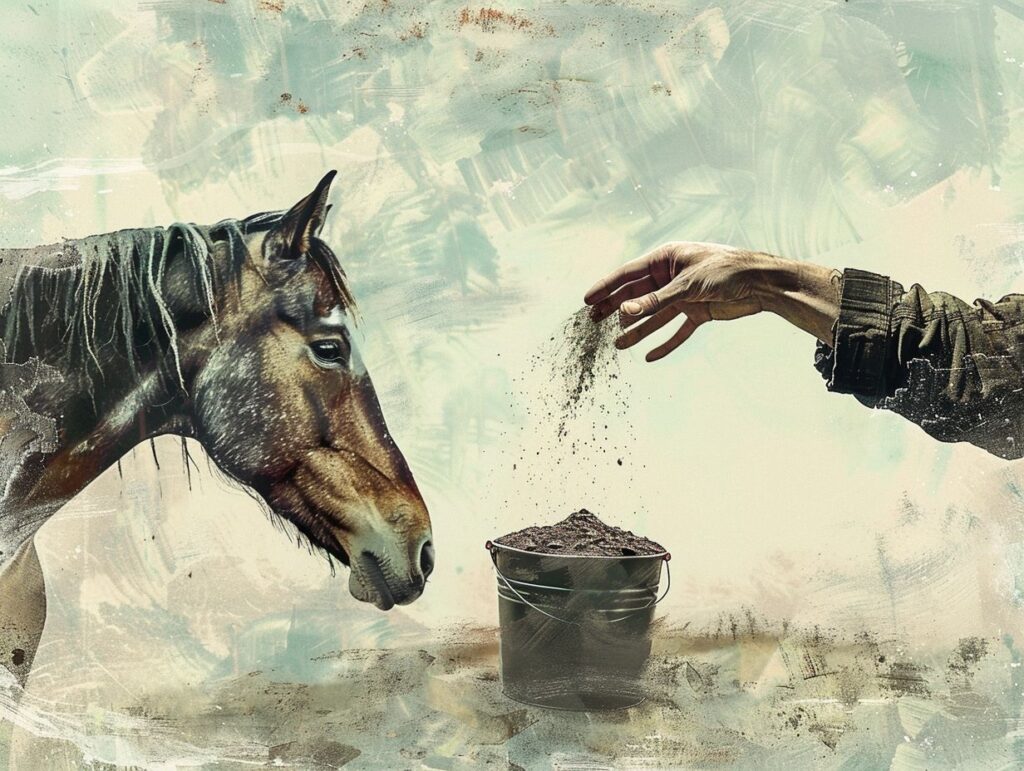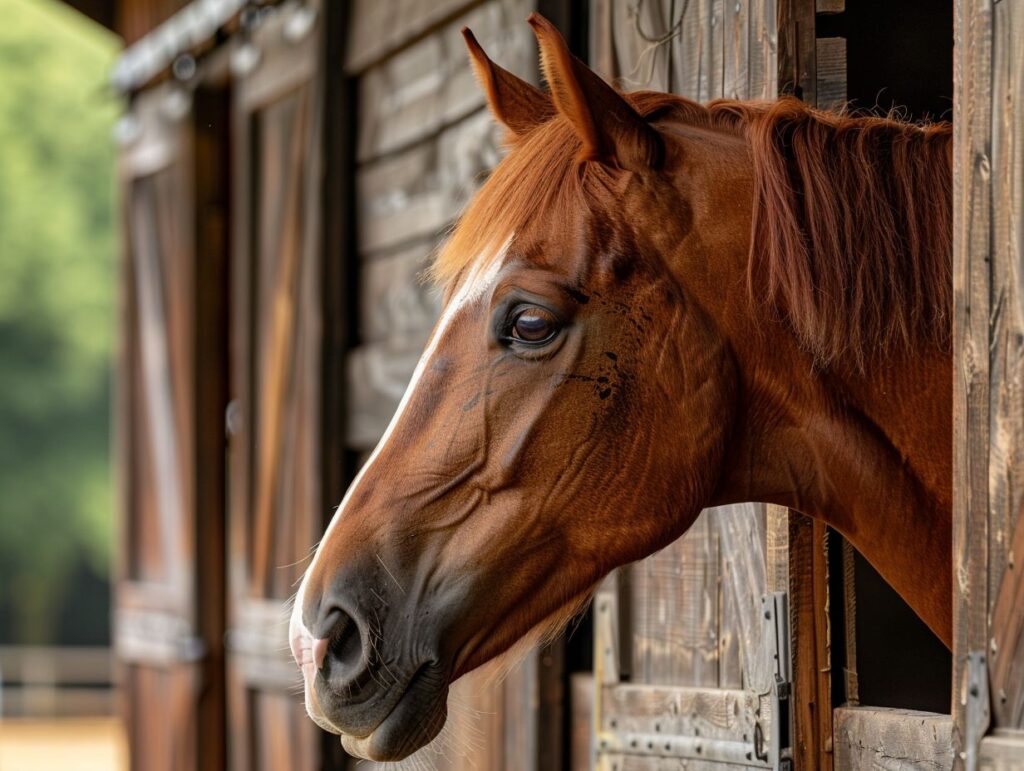If you are looking to enhance your horse’s overall health and performance, understanding the importance of loose minerals is crucial for achieving optimal well-being for your equine companion.
In this discussion, we will explore the benefits of incorporating loose minerals into your horse’s diet, the different types available, and their specific purposes, as well as how to choose the right minerals for your horse.
Additionally, we will discuss methods for giving loose minerals to horses, ensuring proper dosage and intake for maximum effectiveness. By learning how to support your horse’s health with the right minerals, you can help ensure their well-being and performance reach their full potential.
Understanding the Importance of Loose Minerals for Horses
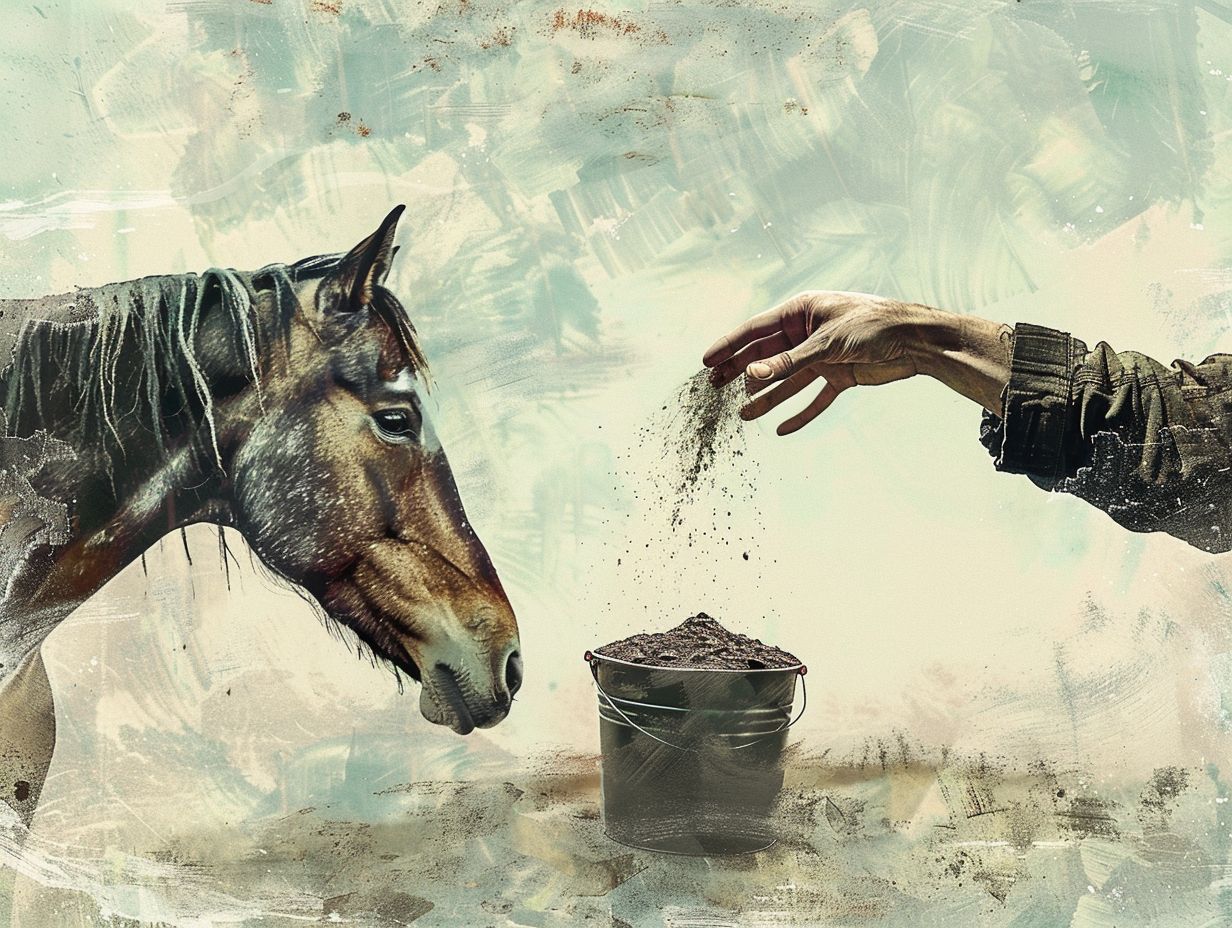
Understanding the importance of loose minerals for horses is crucial for their overall health and well-being. Horses require a balanced diet that includes essential minerals to support various bodily functions and maintain optimal health.
Minerals play a vital role in aiding in the proper functioning of a horse’s metabolism, bone development, and overall well-being. Calcium, phosphorus, magnesium, and other essential minerals are crucial for maintaining healthy bones, muscle function, and nerve transmission.
One way to provide horses with necessary minerals is through offering free-choice loose mineral supplements in accessible areas of their living environment. Monitoring the intake of minerals is essential to prevent deficiencies, as adequate mineral levels are key to ensuring horses thrive and remain in optimal health.
Benefits for Overall Health and Performance
The benefits of loose minerals for horses extend beyond just maintaining health; they play a vital role in enhancing overall performance. Proper mineral intake is essential for meeting your horse’s requirements and ensuring a balanced diet.
Adequate mineral supplementation can lead to improved muscle function, faster recovery, and increased stamina in horses. Minerals like calcium, phosphorus, magnesium, and zinc are crucial for bone strength, muscle contractions, and overall metabolic functions.
It’s imperative for you to understand the specific mineral needs of each individual horse to tailor their diet accordingly. Striking the right balance in mineral intake prevents deficiencies or excesses, which can have detrimental effects on your horse’s health and performance.
Consistent monitoring and adjustment of mineral content in the diet are key to maintaining optimal health and well-being for your equines.
Types of Loose Minerals for Horses
When considering mineral supplements for your horses, it is important to evaluate the different options available, such as mineral blocks and salt licks. Each type of mineral source offers unique benefits that can contribute to the overall health of your equine companions. Selecting the appropriate mineral supplement is crucial to ensure effective absorption and to fulfill the specific mineral requirements essential for the well-being of horses.
Choosing minerals that are tailored to meet the individual needs of your horses is key in providing them with the essential nutrients required for optimal health and performance. Essential minerals like calcium, phosphorus, magnesium, and trace minerals play a critical role in supporting various physiological functions, including bone strength, teeth health, and muscle function. Mineral blocks and salt licks are convenient options for delivering these important minerals, as they encourage horses to consume them willingly, thus promoting their overall health and wellness.
Different Varieties and Their Purposes
Understanding the different varieties of loose minerals for horses and their specific purposes is crucial for providing adequate nutrition. You must recognize that mineral blocks and salt licks serve distinct roles in promoting equine health and ensuring effective mineral absorption.
Along with mineral blocks and salt licks, there are other important mineral sources that play vital roles in maintaining the overall well-being of horses. Loose minerals, such as powdered supplements or granular mixes, offer a convenient way to ensure that horses receive a balanced intake of essential minerals like calcium, phosphorus, magnesium, and more. These loose mineral options can be easily mixed with feed or provided in designated feeding areas for horses to consume according to their individual needs and dietary requirements.
How to Choose the Right Loose Minerals for Your Horse
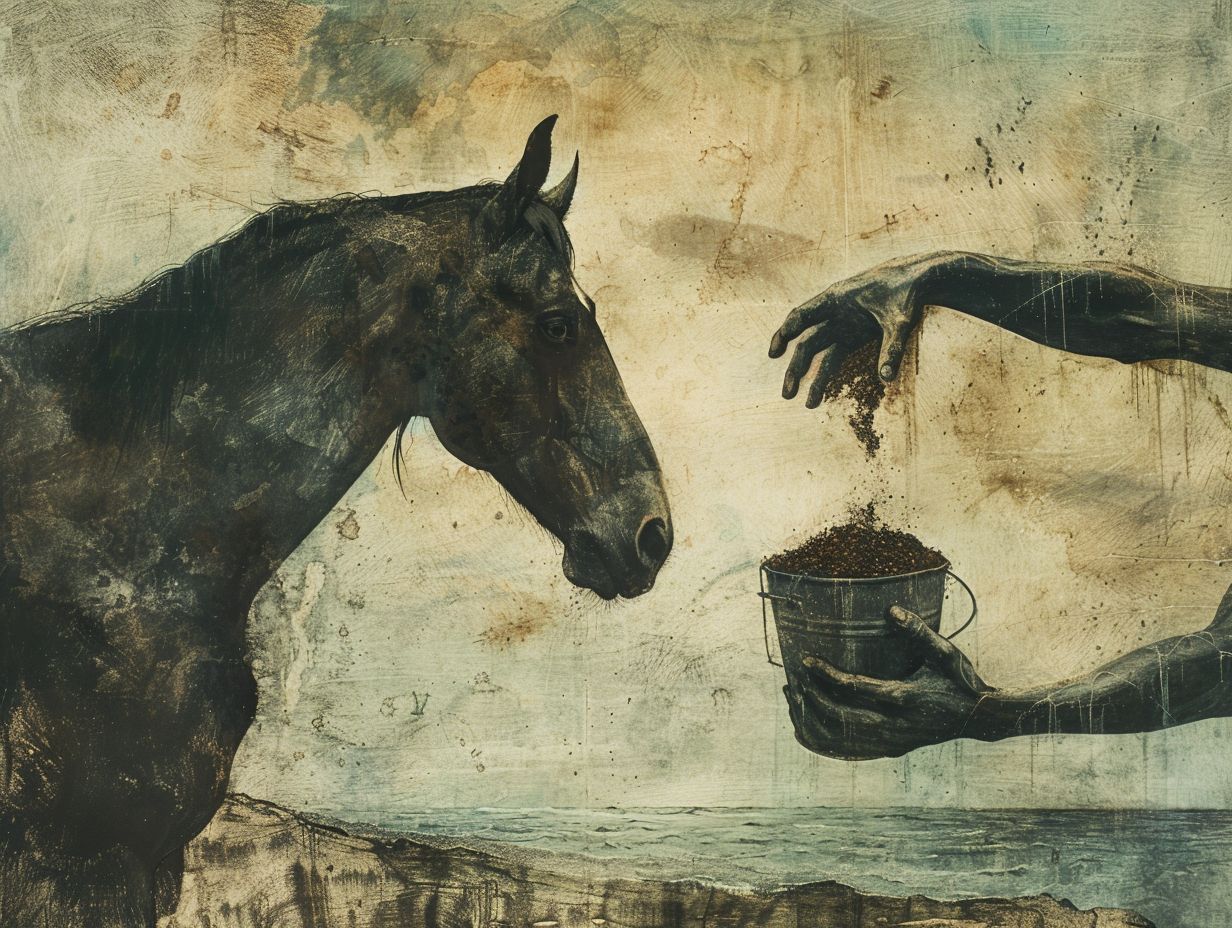
When selecting the appropriate loose minerals for your horse, it is important to consider various factors to ensure their health and well-being. Understanding your horse’s mineral needs and potential deficiencies is crucial for providing proper care through a suitable diet.
To tailor your horse’s diet to address any deficiencies or imbalances, it is recommended that you assess their specific mineral intake requirements and seek guidance from a veterinarian or equine nutritionist. Age, activity level, and overall health are all important factors that should be taken into consideration when determining the correct combination of minerals.
When choosing loose minerals for your horse, opt for high-quality products that are easily absorbed and meet the recommended daily allowances for essential minerals such as calcium, phosphorus, magnesium, and trace minerals. Preventing mineral deficiencies in horses is essential for promoting optimal performance, immune function, and overall well-being.
Factors to Consider When Selecting Minerals
When choosing loose minerals for your horse, you need to consider various factors to ensure optimal mineralization and absorption. Understanding your horse’s specific mineral requirements and addressing any potential deficiencies are crucial aspects in selecting the right minerals.
Focusing on the mineral content in the loose minerals is essential for providing your equine companion with the necessary nutrients for overall health and well-being. Factors such as the bioavailability of minerals, the balance of key elements like calcium and phosphorus, and the presence of trace minerals such as zinc and copper play a significant role in meeting your horse’s nutritional needs. It is essential to select minerals that can be easily absorbed by your horse’s digestive system to prevent mineral imbalances and deficiencies.
By consulting with a veterinarian or equine nutritionist, you can develop a targeted mineral supplementation plan tailored to your horse’s individual requirements.
Methods for Giving Loose Minerals to Horses
When providing loose minerals to horses, you can utilize various methods to ensure they receive the necessary supplementation. Two common approaches to facilitate mineral intake and support proper digestion are incorporating minerals into the horse’s feed or offering them free choice.
An effective way to incorporate loose minerals into a horse’s diet is by mixing the minerals with their daily grain ration. This method allows for controlled consumption, ensuring that the horse receives the required mineral amounts. Alternatively, some horse owners opt to provide loose minerals in a separate feeder, enabling the horses to self-regulate their intake. It is crucial to monitor the mineral levels and adjust the amount offered based on the horse’s specific needs.
Additionally, providing free access to loose minerals in a designated mineral feeder or block can encourage horses to consume minerals as needed. This approach gives horses the opportunity to supplement their diet based on their individual requirements.
Incorporating Minerals into Feed
Incorporating loose minerals into your horse’s feed is a practical method to guarantee they receive the necessary mineral supplementation. Properly mixing mineral supplements with the feed can improve digestion and absorption, ultimately enhancing overall equine health.
When you introduce loose minerals into your horse’s diet, it is imperative to ensure that the supplements are thoroughly integrated into the feed to discourage selective eating. Horses might attempt to avoid consuming the supplements due to their distinctive taste, so effectively blending them with the feed aids in masking the flavor. It is crucial to adhere to the recommended dosage instructions provided by equine nutritionists to prevent over-supplementation, which may result in health complications. By incorporating minerals into their feed correctly, you can bolster the horse’s essential functions and contribute to their well-being.
Providing Loose Minerals Free Choice
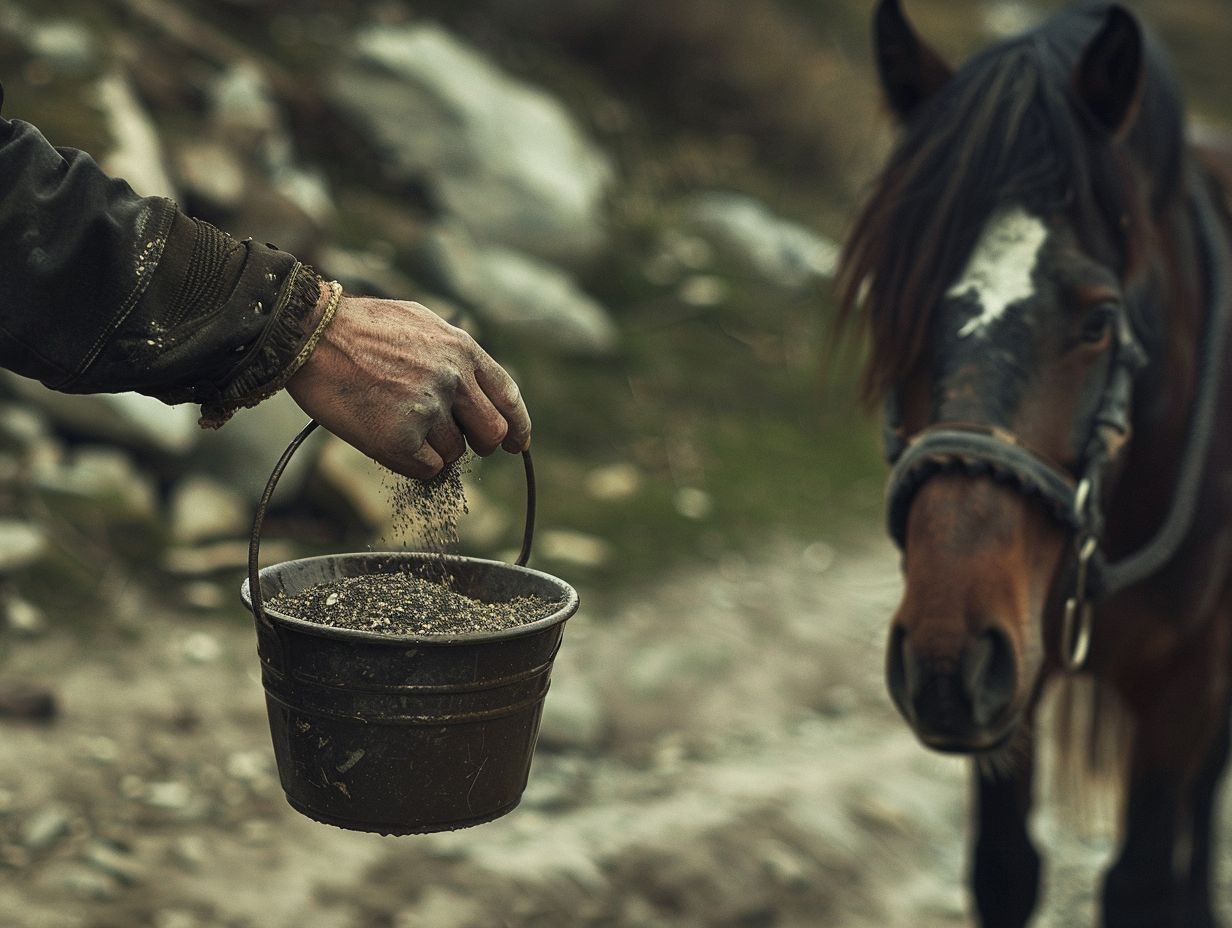
Offering loose minerals to horses free choice allows them to regulate their intake based on individual needs. Providing easy access to mineral supplements ensures that you can fulfill your horse’s mineral requirements naturally and support their overall well-being.
By allowing horses to self-regulate their mineral intake, you can ensure that each horse receives the necessary nutrients without overconsumption. Access to loose minerals promotes optimal health by addressing specific dietary deficiencies that may arise. When offering mineral supplements free choice, it is important to place them in locations easily accessible to the horses, such as designated mineral feeders strategically placed throughout the pasture or stables. This setup encourages natural grazing behavior and ensures that all horses have the opportunity to meet their unique mineral needs.
Ensuring Proper Dosage and Intake
Monitoring and adjusting the dosage of loose minerals for your horses is essential to ensure proper intake and prevent mineral deficiencies. Careful management of mineral balance and meeting your horse’s specific needs are crucial for maintaining optimal health and well-being.
By regularly assessing your horse’s mineral requirements and observing any signs of deficiency, you can tailor their supplementation regimen accordingly. It is imperative to consult with a veterinarian or equine nutritionist when making adjustments to the dosage of loose minerals. Factors such as age, breed, activity level, and environmental conditions play a role in determining the ideal mineral intake for your horse. Conducting periodic blood tests can provide valuable insights into their mineral status and guide you in fine-tuning their diet for optimal health.
Monitoring and Adjusting Mineral Intake
Ensuring your horse’s mineral intake is adequate involves monitoring and adjusting their consumption to prevent deficiencies. Proper management of mineral balance and addressing specific needs are essential for maintaining your horse’s health and preventing adverse effects of mineral deficiency.
You can achieve this by starting with a comprehensive assessment of your horse’s diet and mineral sources. It is crucial to understand the mineral content in the forage, grains, and supplements being provided.
Regularly testing your horse’s blood and conducting mineral analysis can help identify any imbalances or deficiencies. Consulting with a veterinarian or equine nutritionist can provide valuable insights and guidance on adjusting the diet to ensure your horse receives the necessary minerals in the right proportions.
By customizing the mineral intake based on your individual horse’s requirements, you can optimize your equine companion’s health and well-being.
Frequently Asked Questions
How do you give a horse loose minerals?
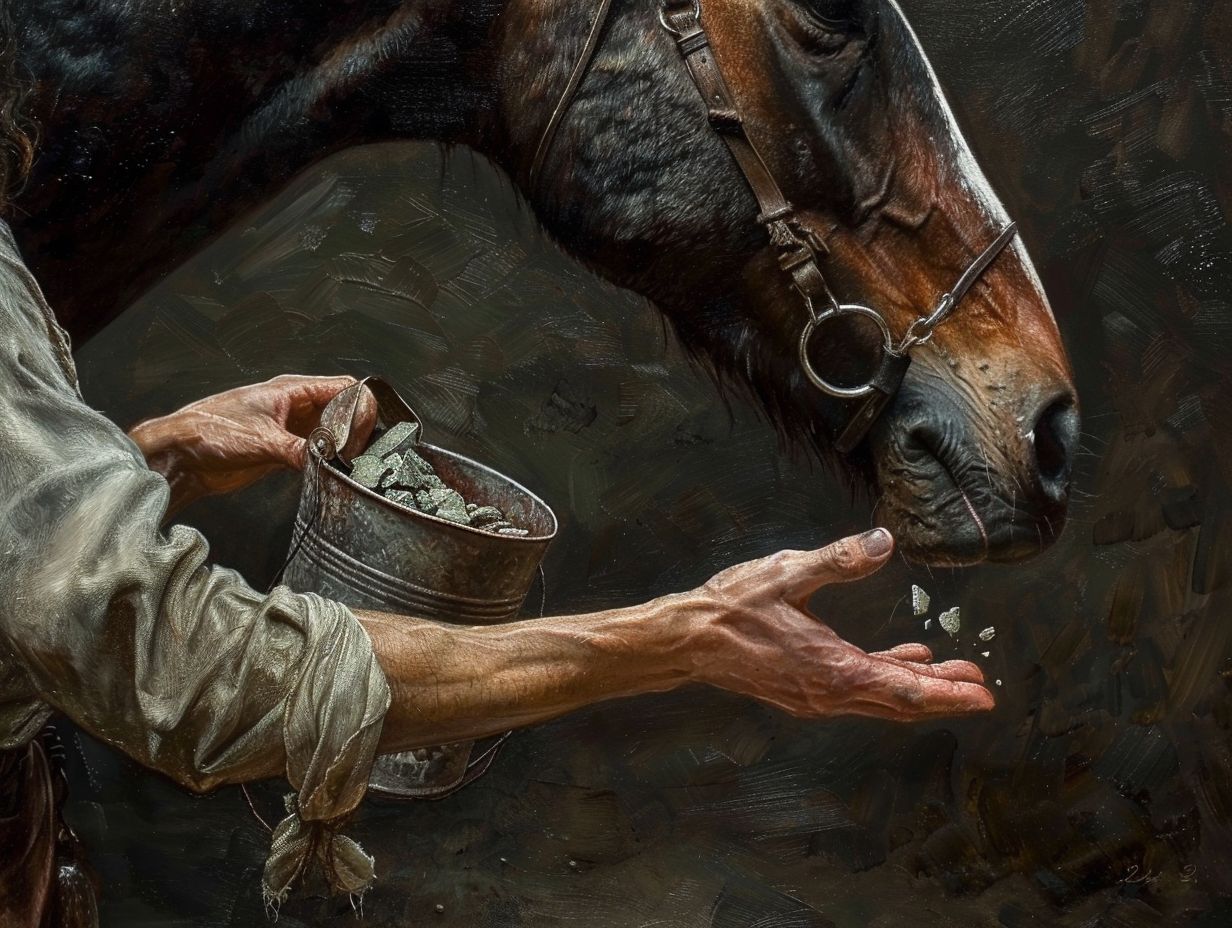
To give a horse loose minerals, you can either add them to their feed or provide them in a separate mineral feeder. Make sure to follow the recommended dosage and monitor their intake.
Why should I give my horse loose minerals?
Loose minerals provide essential nutrients that may be lacking in your horse’s diet. They can help promote overall health, improve coat and hoof quality, and support immune function.
How often should I give my horse loose minerals?
The frequency of giving loose minerals can vary depending on your horse’s individual needs and the brand of minerals you are using. Generally, it is recommended to provide loose minerals daily or a few times a week.
Can I mix loose minerals with my horse’s feed?
Yes, you can mix loose minerals with your horse’s feed as long as they are getting the recommended dosage and are consuming the mixture. However, make sure to check with the manufacturer for any specific instructions on mixing with feed.
What happens if my horse consumes too many loose minerals?
Consuming excess minerals can lead to toxicity in horses, causing symptoms such as diarrhea, weight loss, and abnormal behavior. It is important to follow the recommended dosage and monitor your horse’s mineral intake.
How do I choose the right type of loose minerals for my horse?
When selecting loose minerals for your horse, consider their age, activity level, and any specific health concerns they may have. Consult with your veterinarian for recommendations on the best type of minerals for your horse’s individual needs.
